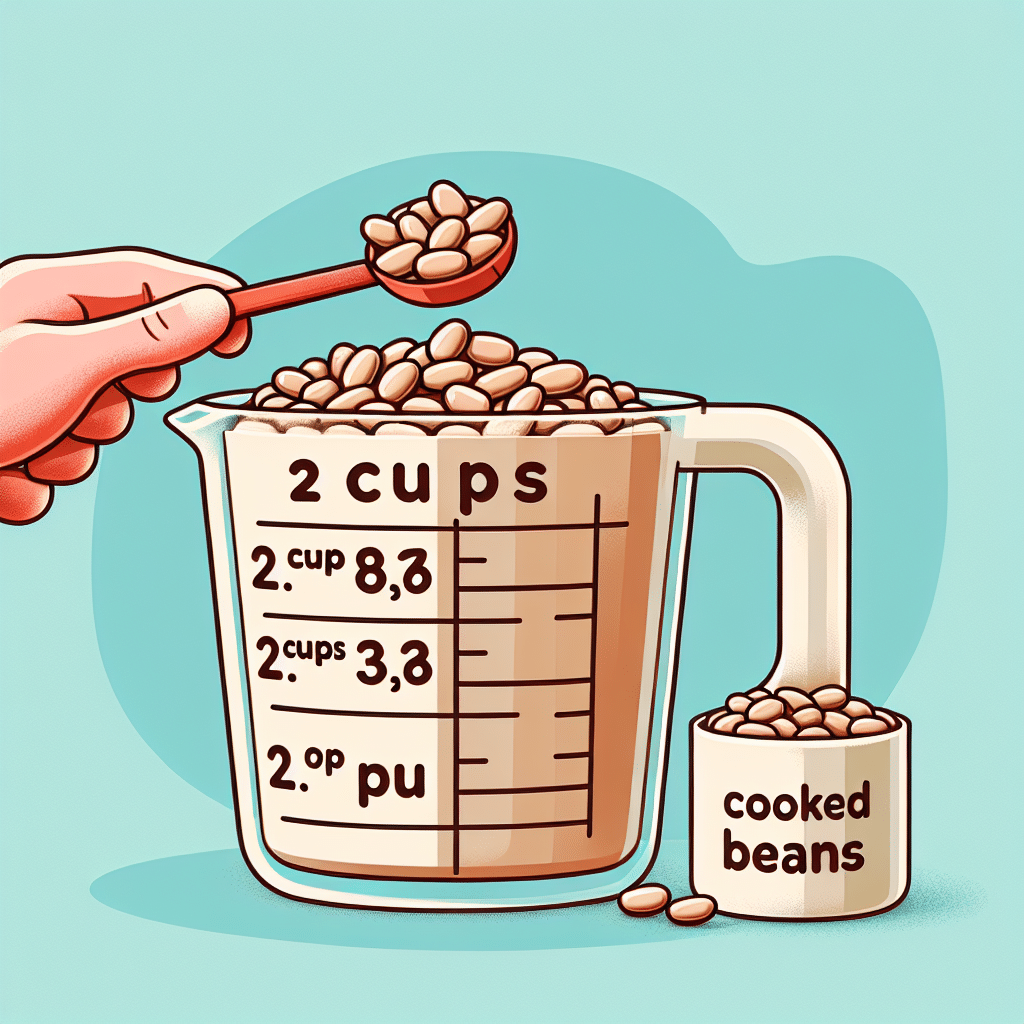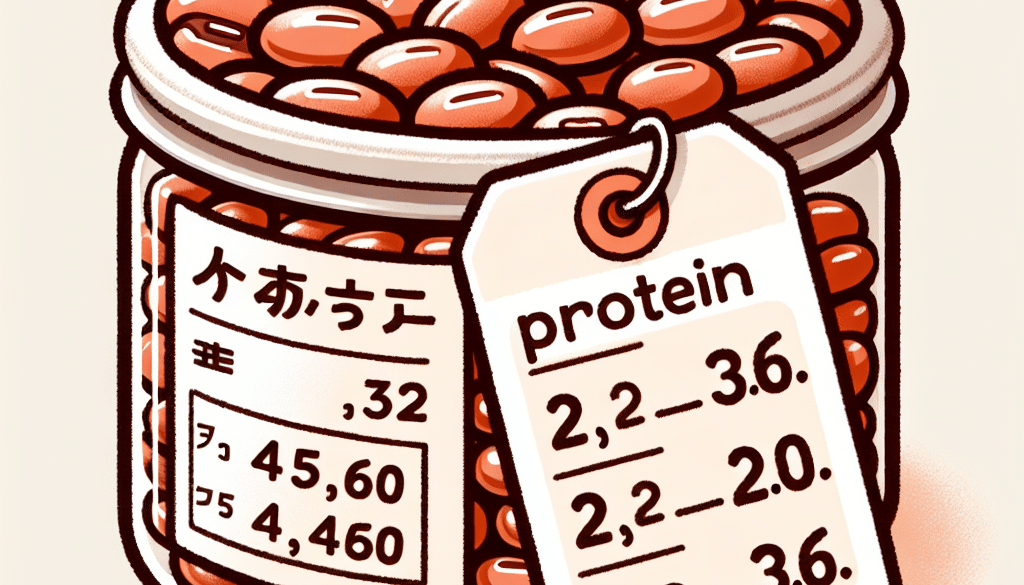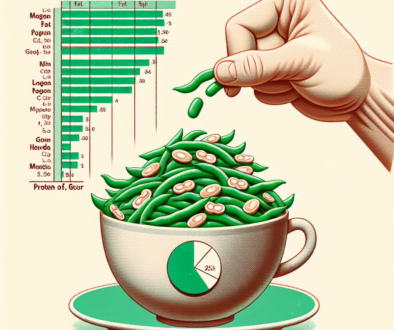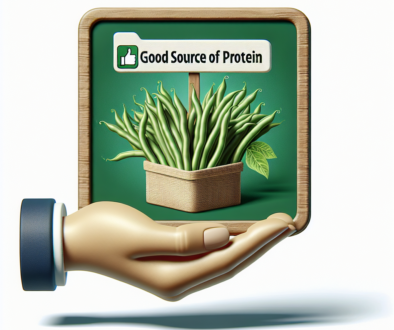How Much Protein Is In 2 Cups Of Cooked Beans?
-
Table of Contents
- Protein Content in 2 Cups of Cooked Beans: A Nutritional Breakdown
- Understanding Protein in Our Diet
- The Protein Profile of Cooked Beans
- Health Benefits of Beans
- Case Studies and Statistics
- How to Incorporate More Beans into Your Diet
- Conclusion: The Protein Power of Beans
- Discover ETprotein’s High-Quality Protein Products
Protein Content in 2 Cups of Cooked Beans: A Nutritional Breakdown

Beans are a staple in many diets around the world, known for their versatility and health benefits. They are a rich source of protein, fiber, vitamins, and minerals. For vegetarians, vegans, and those looking to reduce meat consumption, beans offer a significant amount of plant-based protein. In this article, we will explore the protein content in 2 cups of cooked beans and discuss the importance of protein in our diets.
Understanding Protein in Our Diet
Protein is a macronutrient essential for building and repairing tissues, making enzymes and hormones, and supporting immune function. It is made up of amino acids, some of which are essential and must be obtained through diet. The Recommended Dietary Allowance (RDA) for protein is 0.8 grams per kilogram of body weight per day for adults, although individual needs may vary based on factors such as age, sex, and physical activity level.
The Protein Profile of Cooked Beans
Beans come in many varieties, including black beans, kidney beans, pinto beans, navy beans, and more. Each type has a slightly different nutritional profile, but they all share a common trait: they are high in protein. On average, 1 cup of cooked beans contains about 15 grams of protein. Therefore, 2 cups of cooked beans would provide approximately 30 grams of protein. This amount represents a significant portion of the daily protein requirement for most individuals.
- Black Beans: Roughly 15 grams of protein per cup
- Kidney Beans: About 13 grams of protein per cup
- Pinto Beans: Around 14 grams of protein per cup
- Navy Beans: Nearly 16 grams of protein per cup
It’s important to note that while beans are a good source of protein, they do not contain all the essential amino acids in sufficient quantities. Therefore, they are considered an incomplete protein source. However, when paired with whole grains, nuts, or seeds, they can provide a complete protein profile.
Health Benefits of Beans
Beyond their protein content, beans offer numerous health benefits. They are high in fiber, which can help with digestion and may reduce the risk of heart disease. Beans are also low in fat and contain no cholesterol, making them a heart-healthy choice. Additionally, they are rich in iron, potassium, and magnesium, and they have a low glycemic index, which is beneficial for blood sugar control.
Case Studies and Statistics
Several studies have highlighted the benefits of including beans in the diet. For instance, research has shown that regular consumption of beans can reduce the risk of certain diseases, including heart disease, diabetes, and some cancers. A study published in the Archives of Internal Medicine found that consuming beans at least four times a week lowered the risk of heart disease by 22% compared to those who consumed beans less than once a week.
Furthermore, the high protein content in beans makes them an excellent food choice for weight management. Protein is known to increase satiety, which can help reduce overall calorie intake. A study in the Journal of Human Nutrition and Dietetics reported that participants who included beans in their diet experienced greater weight loss and improvements in cholesterol levels compared to those who did not consume beans.
How to Incorporate More Beans into Your Diet
Including beans in your diet is simple and can be done in a variety of delicious ways:
- Add beans to soups, stews, and chili for a protein boost.
- Use beans as a salad topping for added texture and nutrients.
- Make bean-based dips like hummus or black bean dip for snacks and appetizers.
- Replace meat with beans in tacos, burritos, and other traditional dishes.
- Enjoy bean burgers as a vegetarian alternative to beef patties.
Conclusion: The Protein Power of Beans
In conclusion, 2 cups of cooked beans provide a substantial amount of protein, approximately 30 grams, contributing significantly to the daily protein needs of most individuals. Beans are not only a rich source of protein but also offer a wealth of other nutrients and health benefits. By incorporating beans into your diet, you can enjoy a variety of tasty dishes while supporting your overall health and well-being.
Discover ETprotein’s High-Quality Protein Products
If you’re looking to supplement your diet with additional protein sources, consider ETprotein’s range of organic bulk vegan proteins. ETprotein offers a variety of plant-based proteins, including rice protein, pea protein, and seed proteins, which are non-GMO, allergen-free, and have a neutral taste. These products are ideal for those seeking to increase their protein intake with high-quality, sustainable options.
About ETprotein:
ETprotein, a reputable protein and L-(+)-Ergothioneine (EGT) Chinese factory manufacturer and supplier, is renowned for producing, stocking, exporting, and delivering the highest quality organic bulk vegan proteins and L-(+)-Ergothioneine. They include Organic rice protein, clear rice protein, pea protein, clear pea protein, watermelon seed protein, pumpkin seed protein, sunflower seed protein, mung bean protein, peanut protein, and L-(+)-Ergothioneine EGT Pharmaceutical grade, L-(+)-Ergothioneine EGT food grade, L-(+)-Ergothioneine EGT cosmetic grade, L-(+)-Ergothioneine EGT reference grade and L-(+)-Ergothioneine EGT standard. Their offerings, characterized by a neutral taste, non-GMO, allergen-free attributes, with L-(+)-Ergothioneine purity over 98%, 99%, cater to a diverse range of industries. They serve nutraceutical, pharmaceutical, cosmeceutical, veterinary, as well as food and beverage finished product distributors, traders, and manufacturers across Europe, USA, Canada, Australia, Thailand, Japan, Korea, Brazil, and Chile, among others.
ETprotein specialization includes exporting and delivering tailor-made protein powder and finished nutritional supplements. Their extensive product range covers sectors like Food and Beverage, Sports Nutrition, Weight Management, Dietary Supplements, Health and Wellness Products, and Infant Formula, ensuring comprehensive solutions to meet all your protein needs.
As a trusted company by leading global food and beverage brands and Fortune 500 companies, ETprotein reinforces China’s reputation in the global arena. For more information or to sample their products, please contact them and email sales(at)ETprotein.com today.












